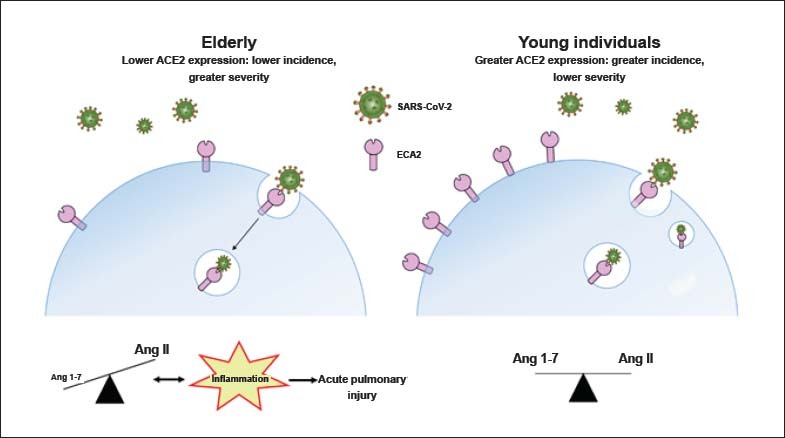Figure 1. Association between age, ACE2 expression and COVID-19 severity. Reduced expression of ACE2 in the membrane of pulmonary epithelial cells (type II pneumocytes) with aging increases the levels of angiotensin II (Ang II) to the detriment of Ang-(1-7) formation, exaggeratedly triggering pro-inflammatory pathways and predisposing elderly patients to greater severity of acute lung injury and mortality from COVID-19. Such predisposition is enhanced by the fact that SARS-CoV-2 binding to ACE2 leads to the internalization of both, further reducing the expression of this enzyme in the cell membrane. In young patients, expression of ACE2 in the cell membrane is greater than in the elderly, enabling a balance between the actions of Ang II and Ang-1-7. Greater expression of ACE2 may cause increased infectivity by SARS-CoV-2, but the generation of Ang-1-7 triggers anti-inflammatory effects that are opposed to those of Ang II, protecting young individuals against the development/progression of acute lung injury. This model is hypothetical and has not been validated experimentally.

